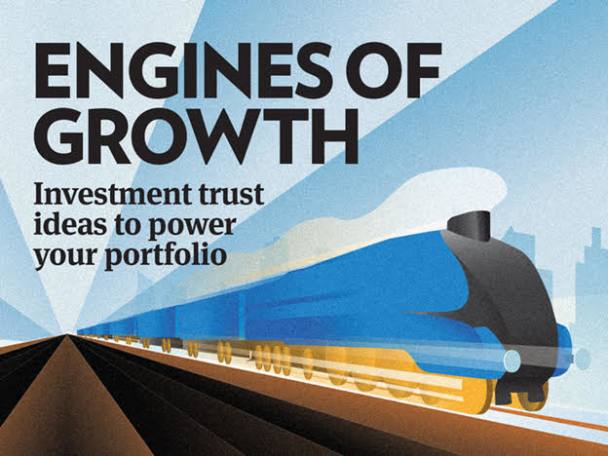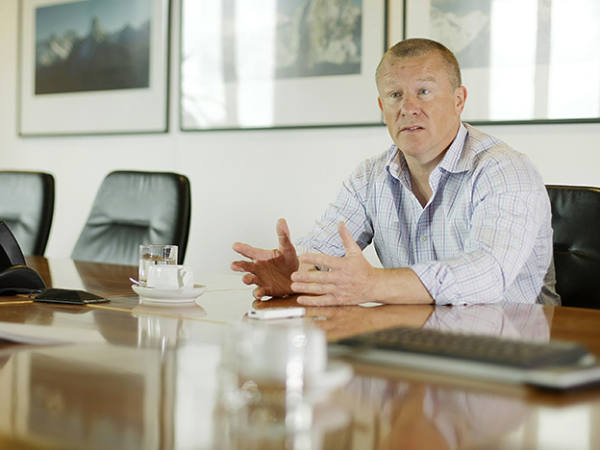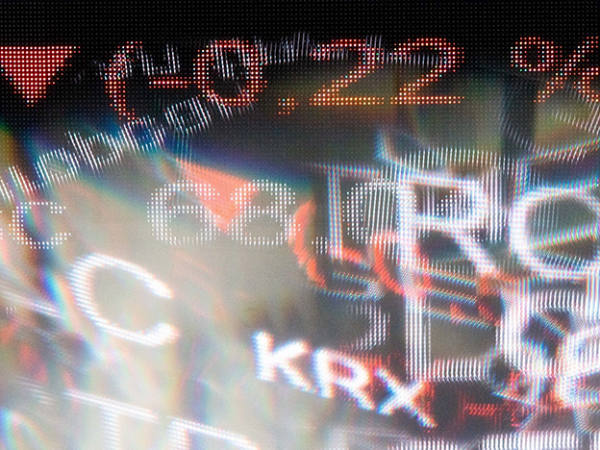- The IC investment trust income portfolios show the mixed fortunes of yield-focused trusts in 2020
- How the two portfolios have fared in the last year and what changes have been made
The income crisis of 2020 has been a mixed experience for investment trust shareholders on the hunt for yield. From equity trusts with bulky revenue reserves to closed-ended funds with a focus on high-yielding alternative assets, much of the sector has provided a steady income in a year marked by mass dividend cuts. But closed-ended funds have not escaped the pandemic unscathed, with investment trust share prices tumbling in the 2020 sell-off and many yet to fully recover. So although many investors have received a steady income they sitting on a capital loss – at least on paper.
Both of the hypothetical £100,000 income portfolios put together by David Liddell, chief executive of IpsoFacto Investor, and Simon Moore, director of consultancy Trust Research, reflect this state of affairs. The portfolios take notably different approaches to each other but have had similar outcomes. Between 1 October 2019 and 30 September 2020, each portfolio generated an attractive income but also suffered a large share price total return fall.
As in previous years, we have outlined each portfolio holding, the proportion of assets it represents, and how it has fared in terms of income generation and share price total return. We have also looked at what the two architects of the portfolios have learned from a tumultuous year and how they are resetting their portfolios for the future.
How David Liddell’s portfolio performed
A year ago, Mr Liddell doubled down on his exposure to UK equity income trusts in the hope that domestic shares and value investment approaches would enjoy a resurgence in 2020. UK equity income trusts made up nearly half of his portfolio and equity-focused funds accounted for 65 per cent of its overall assets. But with the pandemic leading to mass dividend cuts and a rush away from unloved areas such as the UK, this approach has proved painful. Between 1 October 2019 and 30 September 2020, his portfolio's share price total return was a loss of nearly 15 per cent, reducing its capital value to around £85,000.
Some of the trusts in the portfolio have been hit by both shifts in investor sentiment and idiosyncratic problems. Mr Liddell notes that Temple Bar Investment Trust (TMPL) has been through a “perfect storm of horror”, resulting in an overall loss of 45 per cent. The trust takes a deep value approach, with exposure to the likes of banks and oil, and has struggled this year. Renowned investment manager Alistair Mundy also departed this year, with asset manager RWC taking over the portfolio.
Edinburgh Investment Trust (EDIN) has also experienced a change of manager, with Majedie taking over from former Invesco manager Mark Barnett. Such uncertainty can at times hurt sentiment around a trust’s shares.
Broadly, most of Mr Liddell’s portfolio has struggled in terms of share price total return. All of the equity trusts registered losses, as did the recently renamed NB Global Monthly Income Fund (NBMI) and multi-asset trust Aberdeen Diversified Income and Growth (ADIG).
Just two of Mr Liddell’s holdings – JLEN Environmental Assets (JLEN) and BlackRock World Mining Trust (BRWM) – have made positive returns overall, with the latter making big gains.
But his portfolio held up well in terms of income and generated a 4.6 per cent yield overall. Even the holding with the lowest income, iShares UK Dividend UCITS ETF (IUKD), still managed a respectable 3.8 per cent yield.
Table 1
David Liddell's £100,000 portfolio: 1-year performance
1/10/19-30/09/20
| Holding | Asset class | Allocation (%) | Share price total return (%) | Contribution to portfolio return (%) | Income paid (£) | Contribution to income (%) | Yield (%) | Average yield over five years (%) | Capital value as at 30/09/20 (£) |
| Murray International Trust (MYI) | Global equity | 12.5 | -16.17 | -2.02125 | 560.09 | 12.07988698 | 4.48072 | 6 | 10478.75 |
| BMO UK High Income Trust (BHI) | UK equity | 12.5 | -12.5 | -1.5625 | 522.39 | 11.26678241 | 4.17912 | 3.99 | 10937.5 |
| Edinburgh Investment Trust (EDIN) | UK equity | 12.5 | -20.89 | -2.61125 | 604.94 | 13.04720104 | 4.83952 | 3.81 | 9888.75 |
| iShares UK Dividend Ucits ETF (IUKD) | UK equity | 12.5 | -24.41 | -3.05125 | 476.64 | 10.28005737 | 3.81312 | 5.02 | 9448.75 |
| Aberdeen Diversified Income and Growth Trust (ADIG) | Multi-asset | 10 | -11.03 | -1.103 | 499.54 | 10.77395909 | 4.9954 | 4.34 | 8897 |
| Temple Bar Investment Trust (TMPL) | UK equity | 10 | -45.04 | -4.504 | 407.86 | 8.796626802 | 4.0786 | 4.34 | 5496 |
| JLEN Environmental Assets (JLEN) | Infrastructure | 10 | 5.82 | 0.582 | 564.14 | 12.16723642 | 5.6414 | 6.23 | 10582 |
| NB Global Monthly Income Fund (NBMI) | Bonds | 10 | -14.91 | -1.491 | 474.97 | 10.24403921 | 4.7497 | 4.23 | 8509 |
| Aberdeen Asian Income Fund (AAIF) | Asian equity | 5 | -7.31 | -0.3655 | 216.12 | 4.661224402 | 4.3224 | 5.69 | 4634.5 |
| BlackRock World Mining Trust (BRWM) | Commodities | 5 | 22.02 | 1.101 | 309.86 | 6.682986272 | 6.1972 | 8.97 | 6101 |
| Overall portfolio | 100 | -14.69 | 4636.55 | 100 | 4.63655 | 5.262 | 85310 |
| Source: FE Analytics |
Table 2
David Liddell's portfolio performance
As of 30/09/20
| Share price total return (%) | |||||
| Holding | 6-month | 1-year | 3-year | 5-year | 10-year |
| Murray International Trust (MYI) | 13.31 | -16.59 | -14.62 | 45.92 | 66.5 |
| BMO UK High Income Trust (BHI) | 17.47 | -12.5 | -14.68 | 5.77 | 45.35 |
| Edinburgh Investment Trust (EDIN) | 5.65 | -20.76 | -26.76 | -21 | 62.09 |
| iShares UK Dividend Ucits ETF (IUKD) | 7.95 | -24.8 | -27.66 | -19.28 | 26.56 |
| Aberdeen Diversified Income and Growth Trust (ADIG) | 4.44 | -10.62 | -12.29 | -9.72 | 19.51 |
| Temple Bar Investment Trust (TMPL) | -11.66 | -45.04 | -43.23 | -23.2 | 22.2 |
| JLEN Environmental Assets (JLEN) | 9.83 | 6.26 | 29.61 | 51.09 | |
| NB Global Monthly Income Fund (NBMI) | 14.38 | -13.98 | -10.11 | 4.05 | |
| Aberdeen Asian Income Fund (AAIF) | 25.11 | -6.88 | 1.13 | 53.7 | 79.86 |
| BlackRock World Mining Trust (BRWM) | 51.85 | 21 | 31.6 | 161.2 | 4.86 |
| Source: FE Analytics |
David Liddell’s portfolio changes
With a lack of faith in fixed income and a desire to keep a yield of around 5 per cent, Mr Liddell is maintaining a preference for equity income. He is also keen to maintain some value exposure, in part because of a belief that inflation may return in the coming years. But this year’s challenges have prompted him to review some holdings and seek greater geographical diversification.
Four holdings exit the portfolio this year. Mr Liddell has given up on BMO UK High Income Trust (BHI), noting: “I’m not sure it’s adding that much”. iShares UK Dividend UCITS ETF, originally included as a diversified source of UK equity income despite not being an investment trust, also goes. This fund was also ejected from this year’s Top 50 ETFs list because of concerns about the difficulty of generating UK equity income in a passive format.
“There’s more value to be had in investment trusts trading at a discount,” notes Mr Liddell. “And the yield will drop [on the ETF].”
Temple Bar Investment Trust also leaves the portfolio. While Mr Liddell believes that the trust’s value approach could be due a rebound, he is unsure how the portfolio will look under its new managers. The trust's board has also announced plans to cut its payout in the shorter term, although with the intention of "renewing dividend growth" in the coming years.
Mr Liddell has also dropped NB Global Monthly Income Fund, citing a disappointing performance and a lack of clarity about its future approach as the board looks to revamp the trust's strategy.
Mr Liddell is introducing Dunedin Income Growth Investment Trust (DIG) as an active replacement for iShares UK Dividend UCITS ETF. He is also looking to diversify away from the UK by introducing North American Income Trust (NAIT) and JPMorgan European Investment Trust (JETI) to the portfolio. He believes the former could benefit from US fiscal stimulus, while JPMorgan European Investment Trust offers exposure to cheap value stocks outside the UK. Another non-UK equity trust, CC Japan Income & Growth (CCJI), also enters the portfolio.
Some of the allocations to existing holdings have also changed. Mr Liddell takes some profit on his position in JLEN Environmental Assets, whose shares trade on a hefty premium to the value of its underlying assets. He has also doubled the size of his position in Aberdeen Asian Income Fund (AAIF) to 10 per cent, and increased the allocation to BlackRock World Mining Trust from 5 to 7.5 per cent.
| Table 3 |
| David Liddell's new £100,000 portfolio |
| Holding | Asset class | Allocation (%) |
| Murray International Trust (MYI) | Global equity | 12.5 |
| Edinburgh Investment Trust (EDIN) | UK equity | 12.5 |
| Dunedin Income Growth (DIG)* | UK equity | 12.5 |
| North American Income Trust (NAIT)* | US equity | 12.5 |
| Aberdeen Diversified Income and Growth Trust (ADIG) | Multi-asset | 10 |
| JPMorgan European Investment Trust (JETI)* | European equity | 10 |
| Aberdeen Asian Income Fund (AAIF) | Asian equity | 10 |
| JLEN Environmental Assets (JLEN) | Infrastructure | 7.5 |
| BlackRock World Mining Trust (BRWM) | Commodities | 7.5 |
| CC Japan Income & Growth Trust (CCJI)* | Japan equity | 5 |
| *New holdings |
| Table 4 |
How David Liddell's new additions have performed – share price total return (%) |
| Holding | Six-month | One-year | Three-year | Five-year | 10-year |
| Dunedin Income Growth (DIG) | 1.96 | -4.87 | 10.55 | 39.28 | 91.78 |
| North American Income Trust (NAIT) | -17.08 | -25.57 | 0.34 | 71.82 | 156.45 |
| JPMorgan European Investment Trust (JETI) | 6.29 | -1.76 | -4.37 | 32.13 | 113.07 |
| CC Japan Income & Growth Trust (CCJI) | -7.23 | -16.29 | -2.72 |
| Source: FE Analytics as of 30/09/20 |
How Simon Moore’s portfolio performed
In a year dominated by equity dividend cuts and stock market volatility, Mr Moore’s portfolio stood out because of his preference for alternative asset classes. Trusts with a focus on property or infrastructure made up 55 per cent of his portfolio, with 20 per cent allocated to debt funds. Equity trusts represented just a quarter of Mr Moore's portfolio.
Perhaps unsurprisingly, this portfolio has fared better than a more equity-oriented selection. Mr Moore’s portfolio generated a yield of more than 5 per cent and outperformed Mr Liddell’s picks in terms of both income and share price total return. Asset classes such as infrastructure have continued to generate strong levels of income, regardless of recent difficulties in markets and economies.
But it has not all been plain sailing, with the stock market volatility that accompanied the pandemic battering investment trust shares across all asset classes. Just two of the 11 holdings in this portfolio made a positive share price total return, with the falls elsewhere resulting in an 8.9 per cent loss for the portfolio overall. Weak performance over this 12-month period would have destroyed more than £9,000 of the portfolio’s capital value.
Mr Moore says that it has been “a year of two halves”. As Table 6 shows, the vast majority of the trusts in his portfolio have rebounded strongly in the six months to the end of September, but are yet to fully recover from a year marked by the harsh sell-off in February and March. It is a similar case with Mr Liddell's holdings (see Table 2).
“Most things have recovered,” says Mr Moore. “Those that haven’t yet recovered I will keep holding for total return and the upside.”
The weakest holding in Mr Moore's portfolio over this 12-month period invests in alternative assets. Fair Oaks Income (FAIR) is a debt trust that suspended its dividend amid the pandemic before later reinstating it, and its share price total return was a fall of 33.6 per cent. And property real estate investment trust LXI Reit (LXI), one of Mr Moore’s two largest positions, was down by nearly 14 per cent.
But the other alternative asset trusts in the portfolio fared much better. US Solar Fund (USF), Tritax EuroBox (EBOX) and GCP Infrastructure Investments (GCP) registered relatively small losses over the 12 months to 30 September. TwentyFour Income Fund (TFIF) made a modest gain, while International Public Partnerships (INPP) made a share price total return of nearly 10 per cent.
Mr Moore’s equity holdings generally had a more difficult time. Aberdeen Standard Equity Income Trust (ASEI) and BlackRock Frontiers Investment Trust (BRFI) each lost more than 25 per cent in share price total return terms, although their relatively small sizes within Mr Moore’s portfolio limited their effect on its overall return. Henderson Far East Income (HFEL) and JPMorgan Global Emerging Markets Income Trust (JEMI) also struggled.
But most of Mr Moore's portfolio holdings generated an attractive income. Eight of the 11 trusts paid a yield of at least around 4.5 per cent. Fair Oaks Income continued to generate an extremely high yield of 9.3 per cent – despite the temporary suspension of payouts earlier this year. As with many new trusts that are yet to fully invest their assets, US Solar has not yet hit its target income.
| Table 5 |
| Simon Moore's £100,000 portfolio: 1-year performance 1/10/19-30/09/20 |
| Holding | Asset class | Allocation (%) | Share price total return (%) | Contribution to portfolio return (%) | Income paid (£) | Contribution to income (%) | Yield (%) | Average yield over five years (%) | Capital value as at 30/09/19 (£) |
| LXI Reit (LXI) | Property | 15 | -13.6 | -2.04 | 548.08 | 10.57820359 | 3.653867 | NA | 12960 |
| International Public Partnerships (INPP) | Infrastructure | 15 | 9.49 | 1.42 | 706.28 | 13.63153852 | 4.708533 | 5.31 | 16423.5 |
| Henderson Far East Income (HFEL) | Asian equity | 10 | -10.88 | -1.09 | 623.98 | 12.04310954 | 6.2398 | 7.83 | 8912 |
| Fair Oaks Income (FAIR) | Debt | 10 | -33.57 | -3.36 | 925.86 | 17.86953652 | 9.2586 | 16.35 | 6643 |
| TwentyFour Income Fund (TFIF) | Debt | 10 | 0.05 | 0.01 | 449.54 | 8.676334917 | 4.4954 | 5.26 | 10005 |
| GCP Infrastructure Investments (GCP) | Infrastructure | 10 | -1.49 | -0.15 | 603.17 | 11.64146668 | 6.0317 | 6.25 | 9851 |
| Tritax EuroBox (EBOX) | Property | 10 | -4.21 | -0.42 | 449.79 | 8.681160036 | 4.4979 | NA | 9579 |
| JPMorgan Global Emerging Markets Income Trust (JEMI) | Emerging market equity | 5 | -8.63 | -0.43 | 193.92 | 3.742747847 | 3.8784 | 5.71 | 4568.5 |
| BlackRock Frontiers Investment Trust (BRFI) | Frontier market equity | 5 | -25.76 | -1.29 | 284.09 | 5.483071555 | 5.6818 | 7.02 | 3712 |
| US Solar Trust (USF) | Infrastructure | 5 | -4.09 | -0.20 | 118.51 | 2.28729913 | 2.3702 | NA | 4795.5 |
| Aberdeen Standard Equity Income Trust (ASEI) | UK equity | 5 | -29.08 | -1.45 | 278 | 5.36553167 | 5.56 | 4.2 | 3546 |
| Overall portfolio | 100 | -8.9 | 5181.22 | 5.125109 | 7.24125 | 90995.5 |
| Source: FE Analytics |
Table 6
Simon Moore's portfolio performance as of 30/09/20
| Share price total return (%) | |||||
| Holding | 6-month | 1-year | 3-year | 5-year | 10-year |
| LXI Reit (LXI) | 1.42 | -13.73 | 19.14 | ||
| International Public Partnerships (INPP) | 8.37 | 9.92 | 17.22 | 55.16 | 133.42 |
| Henderson Far East Income (HFEL) | 13.55 | -11.13 | 1.43 | 55.3 | 68.32 |
| Fair Oaks Income (FAIR) | 34.46 | -32.8 | -29.33 | 4 | |
| TwentyFour Income Fund (TFIF) | 20.65 | 0.51 | 3.95 | 12.52 | |
| GCP Infrastructure Investments (GCP) | 6.68 | -1.95 | 10.98 | 30.79 | 110.61 |
| Tritax EuroBox (EBOX) | -4.14 | -3.6 | |||
| JPMorgan Global Emerging Markets Income Trust (JEMI) | 19.32 | -8.63 | 3.55 | 63.31 | 61.11 |
| BlackRock Frontiers Investment Trust (BRFI) | 14.69 | -25.76 | -28.6 | 11.18 | |
| US Solar Fund (USF) | 5.54 | -3.31 | |||
| Aberdeen Standard Equity Income Trust (ASEI) | -0.04 | -29.45 | -35.86 | -27.68 | 36.7 |
| Source: FE Anaytics |
Simon Moore’s portfolio changes
While Mr Moore suggests that there may have been “nowhere to hide” in the 2020 sell-off, this year’s difficulties have highlighted the need to diversify effectively.
“You may think that you have lots of different assets and they should be diversified,” he notes. “But [they weren't] a great diversifier because everything went the same way, bar International Public Partnerships. My takeaway is that I need a bit more diversification.”
Mr Moore is sticking with most of his positions in the hope that they recover fully. But he is selling his two winners and switching up his exposure in a bid for greater diversification, as well as dropping one trust that has proved disappointing.
Mr Moore is moving out of International Public Partnerships, the portfolio’s best performer and one of its two biggest positions. This infrastructure trust has fared well because of its exposure to government private finance initiative (PFI) contracts, and assets such as schools and hospitals, which continue to pay income despite the events of 2020. But Mr Moore notes that it is “quite UK-focused” and fairly concentrated, with 17 per cent of assets in its biggest holding alone and 9 per cent in its next largest position.
“The trust has 26 per cent in those two UK investments and the government may struggle to find cash,” he says. “Having non-sterling exposure may be good.”
So he is shifting the 15 per cent position in International Public Partnerships into BBGI Global Infrastructure (BBGI), another infrastructure trust with a focus on public sector-backed revenues. But BBGI Global Infrastructure has an international focus, with just 30 per cent of its assets in the UK at the end of June.
Mr Moore continues to favour Fair Oaks Income for its exposure to loans packaged within collateralised loan obligations (CLOs), but also wants a different allocation to debt, in the form of corporate bonds. So he is selling TwentyFour Income Fund, which focuses on asset-backed debt, and allocating the proceeds to Henderson Diversified Income Trust (HDIV). As with BBGI, part of the reason why he likes this flexible bond trust is its exposure to markets outside the UK.
“TwentyFour is very good but I think getting away from the UK space would be good,” he says. “The guys at Henderson Diversified Income have 90 per cent in bonds and 60 per cent in the US. It’s a different skillset to make money in bond markets when interest rates are going up or down, duration falls, and inflation might come or not. I’ve been very impressed by [its manager] John Pattullo.”
Mr Moore is exiting US Solar Fund, a recently launched renewable energy infrastructure trust he bought into last year and accounted for 5 per cent of his portfolio. The trust has disappointed in various respects, including seeming “a little bit slow” in its rate of purchases and because its investment manager has been the victim of a fraud.
Mr Moore is switching into Athelney Trust (ATY), a UK smaller companies trust with an income mandate. It holds popular stocks such as Games Workshop (GAW) and Liontrust Asset Management (LIO), as well as other trusts such as Tritax Big Box Reit (BBOX). Mr Moore is both a shareholder in and a member of Athelney Trust's board.
“There is a risk because it’s focused on the UK, which has to deal with Brexit and Covid-19, but it’s only a 5 per cent position,” he says.
| Table 7 |
| Simon Moore's new £100,000 portfolio |
| Holding | Asset class | Allocation (%) |
| LXI Reit (LXI) | Property | 15 |
| BBGI Global Infrastructure (BBGI)* | Infrastructure | 15 |
| Henderson Far East Income (HFEL) | Asian equity | 10 |
| Fair Oaks Income (FAIR) | Debt | 10 |
| Henderson Diversified Income Trust (HDIV)* | Bonds | 10 |
| GCP Infrastructure Investments (GCP) | Infrastructure | 10 |
| Tritax EuroBox (EBOX) | Property | 10 |
| JPMorgan Global Emerging Markets Income Trust (JEMI) | Emerging market equity | 5 |
| BlackRock Frontiers Investment Trust (BRFI) | Frontier market equity | 5 |
| Athelney Trust (ATY)* | UK equity | 5 |
| Aberdeen Standard Equity Income Trust (ASEI) | UK equity | 5 |
| *New additions |
| Table 8 |
| How Simon Moore's new additions have performed |
| Share price total return (%) | |||||
| Holding | Six-month | One-year | Three-year | Five-year | 10-year |
| Athelney Trust | 3.72 | -13 | -16.51 | 1.29 | 119.98 |
| BBGI Global Infrastructure | 9.37 | 13.84 | 39.07 | 72.2 | |
| Henderson Diversified Income Trust | 23.39 | -0.17 | 7.7 | 24.8 | 91 |
| Source: FE Analytics as of 30/09/20 |











